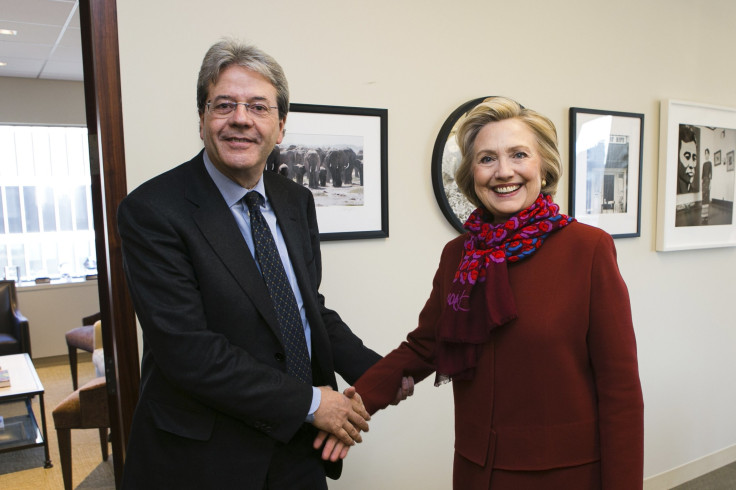Election 2016: Hillary Clinton Already Target Of Republican Attacks; The 'Beltway Primary' Begins

WASHINGTON -- Before any actual presidential primary comes the so-called Beltway primary, the Washington political class’ assessment of a candidate’s early steps. (The so-called fundraising primary, forcing a candidate to demonstrate the ability to raise enough money to run a viable national campaign, is a subset.) For Hillary Clinton, the Beltway primary has already begun, and she’s not winning.
Stories about disagreements inside Hillaryworld over fundraising and tactics were swirling after Clinton ally David Brock split with a Super PAC that will back her presidential campaign. Meanwhile, the Republican National Committee is needling Clinton about the fact she hasn’t officially launched her campaign, accusing her of “hiding.”
The Beltway primary’s power -- such as it is -- lies in generating negative press coverage, making political contributors nervous and giving the opposition a chance to get into the fight. Clinton is seeing what happens when you’re the only candidate in the primary. The GOP is focused squarely on criticizing her and pointing out every possible misstep.
There are some real concerns for Clinton. Her previous presidential run in 2008 was plagued by turf wars and turmoil, and observers will be quick to conclude -- and report -- that this campaign is no better.
But the inner workings of a campaign matter very little to voters, especially a year away from the first primary ballot. Attacking a candidate for not announcing early enough is also unlikely to gain much traction. For starters, Clinton isn’t off schedule. None of the likely 2016 Republican candidates has officially announced. Mitt Romney didn’t formally start his 2012 campaign until June of the previous year. He launched his exploratory committee in April of that year.
Voters on a bipartisan basis agree the campaign season is already too long. A 2011 Gallup poll in the run-up to the last presidential campaign found that a year before Election Day, most Americans surveyed would have been happy for the election to be already over. Among those polled in 12 swing states, 75 percent said they were ready for the campaign to end. Only 21 percent said they were eager for it to begin. Campaign fatigue is real.
But that won’t push back the start of the Beltway primary. The RNC released a video montage of television pundits’ pronouncements on the Clinton campaign’s dysfunction.
“It’s only February 2015, and the Clinton camp is already at each other’s throats,” RNC press secretary Michael Short wrote in a blast to reporters. “The infighting, reminiscent of the squabbling that helped sink Clinton’s failed 2008 bid, is having a negative impact on early fundraising (her Super PAC really is dead broke) and raising questions about Clinton’s ability to run a quality campaign this time around. And despite a coordinated public relations effort to stop the bleeding, the latest rift remains ‘raw and wide.’”
What’s the key phrase in that barrage? Probably this: “It’s only February 2015.”
© Copyright IBTimes 2024. All rights reserved.






















